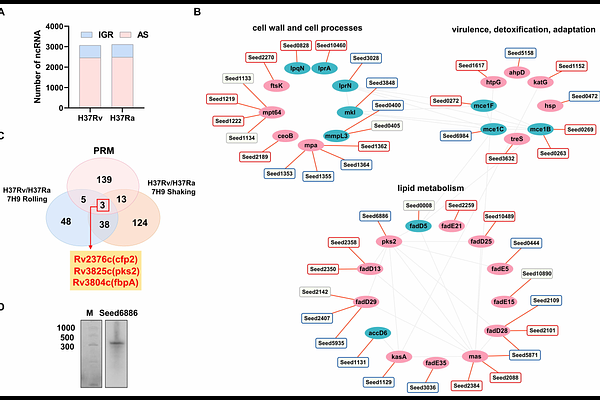Small RNA ASpks2 Promote Mycobacterium tuberculosis Survival in Macrophages via Targeting Polyketide Synthase 2

Small RNA ASpks2 Promote Mycobacterium tuberculosis Survival in Macrophages via Targeting Polyketide Synthase 2
Wu, Q.; yang, m.; Bi, l.; Chen, Y.; Yu, W.; ge, F.
AbstractMycobacterium tuberculosis is the causative pathogen of human tuberculosis and a leading cause of death worldwide attributed to a single infectious agent. While small non-coding RNAs (sRNAs) have emerged as key regulators of bacterial pathogenicity, their specific roles and mechanisms in M. tuberculosis remain poorly understood. Here, we employed label-free quantitative proteomics, parallel reaction monitoring, and sRNA-seq analyses to identify proteomic differences between the virulent H37Rv and attenuated H37Ra strains. Bioinformatic analysis revealed significant enrichment of differentially expressed proteins involved in lipid metabolism and fatty acid biosynthesis, key pathways linked to M. tuberculosis virulence. We identified a novel sRNA, ASpks2, which was significantly downregulated in H37Rv. Functional validation demonstrated that ASpks2 directly targets the polyketide synthase 2 (pks2), modulating its expression to enhance M. tuberculosis survival in human macrophages THP-1 cells. By correlating the omics data with functional studies, this study identified a novel sRNA and its regulatory network in M. tuberculosis, which provides novel insight into the molecular pathogenesis of M. tuberculosis and may serve as a basis for the development of targeted therapies.